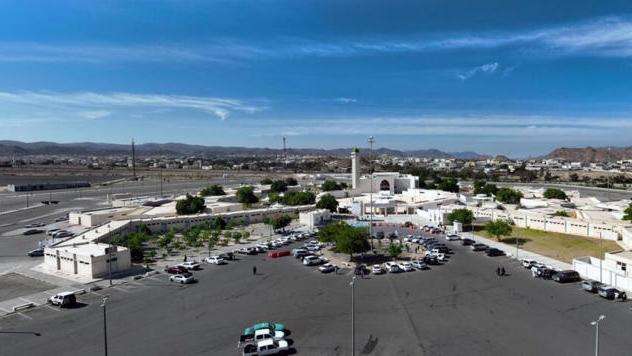A growing unease grips South Asia as tensions surge between India and Pakistan following the recent Kashmir attack on April 22, 2025, leaving Bangladesh in a precarious position despite its geographical distance. The intricate web of economic ties and shifting regional politics threatens to pull Bangladesh into the conflict's orbit, sparking concern among the Bangladeshi diaspora worldwide.
Bangladesh's robust economic growth, deeply intertwined with regional trade, faces significant disruption if the India-Pakistan situation escalates. Bilateral trade with both nations could face severe impediments, particularly impacting Bangladesh's crucial ready-made garment industry, which relies on Indian infrastructure and contributes significantly to the nation's economy. India's recent decision to withdraw transshipment facilities has already increased export costs and poses a threat to this vital sector. Supply chain bottlenecks for essential raw materials from both India and Pakistan could lead to shortages and inflation, affecting key industries like textiles and pharmaceuticals. The volatile regional climate also deters foreign investment, potentially hindering Bangladesh's growth and job creation. Increased transportation costs and insurance premiums due to security concerns would further burden Bangladesh's trade activities.
Beyond economics, the escalating tensions coincide with notable political shifts in Bangladesh. The interim government's pursuit of closer ties with Pakistan, after a period of strong alignment with India, has been met with displeasure in New Delhi, exemplified by the cancellation of transshipment facilities. This geopolitical realignment adds another layer of complexity to Bangladesh's position. The instability in the region also raises concerns about internal security within Bangladesh and could exacerbate communal tensions, particularly given the recent rise in anti-India sentiment and attacks on minorities. Furthermore, a conflict would likely cripple the already struggling SAARC, hindering regional cooperation.
The Bangladeshi community in the United Kingdom, particularly in areas like Tower Hamlets with a significant "deshi" population, is watching the developments with considerable anxiety. Their ties to family and business interests in Bangladesh make them acutely aware of the potential repercussions. Similarly, Bangladeshis in the UK, British Bangladeshi,USA and the Middle East, many of whom contribute significant remittances, are concerned about the broader regional instability and its potential impact on their homeland and their earnings.
To navigate this perilous path, Bangladesh must prioritize strict neutrality, resisting pressure to align with either nation. Strengthening domestic economic resilience through diversified trade routes and stockpiling essential goods is crucial. Active participation in regional diplomatic efforts to de-escalate tensions and a focus on maintaining internal stability and social cohesion are also paramount. The coming months will be critical in determining whether Bangladesh can successfully steer clear of the India-Pakistan conflict's shadow and safeguard its own stability and prosperity.
Daily Dazzling Dawn understands that. It's a perspective suggesting that the nuclear deterrent between India and Pakistan makes a full-scale conventional war unlikely. Instead, any conflict will likely be a "performance" or limited engagement used by political and military entities like the BJP and the Pakistan Army to distract from internal issues and gain public support.


_7.jpg)

_8.jpg)



.svg)

